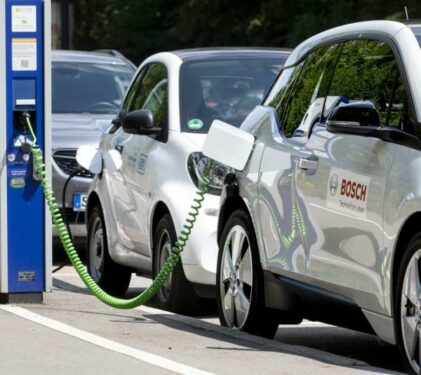Engineering firm Bosch has developed a cloud-based system that monitors an electric vehicle’s battery-management system to prevent cell degradation, predict lifetime capacity and forecast performance criteria.
The German firm’s technology will transmit a battery’s data— ambient temperature and charging habits— to the cloud, where machine-learning algorithms can adjust the cells capacity to maximise their performance if required.
For example, reducing a fully charged battery by a few percent when temperatures are too high or low can avoid the undue stress on a cell that leads to aging. Data in the cloud will also identify a battery fault or defect to notify the driver.
The system also optimises the recharging process; with the software calculating the charge curve to ensure the battery is recharged to the optimum level.
Another feature of the smart software function is the use of the swarm principle to gather data from an entire fleet. Didi Chuxing, a mobility platform based in China, is introducing this system across its EV fleet.
“Previously, it was not possible to make any accurate forecast of how quickly an electric-vehicle battery would wear out,” said Dr Markus Heyn, member of the board of management of Bosch.
“Powerful batteries with long service lives will make electro-mobility more viable. Bosch’s data-based services mean we can substantially improve batteries’ performance and extend their service life.”
The average service life of lithium-ion batteries is 8-10 years or between 500-1,000 charge cycles. Battery makers usually guarantee mileage of between 100,000 and 160,000 kilometres.












